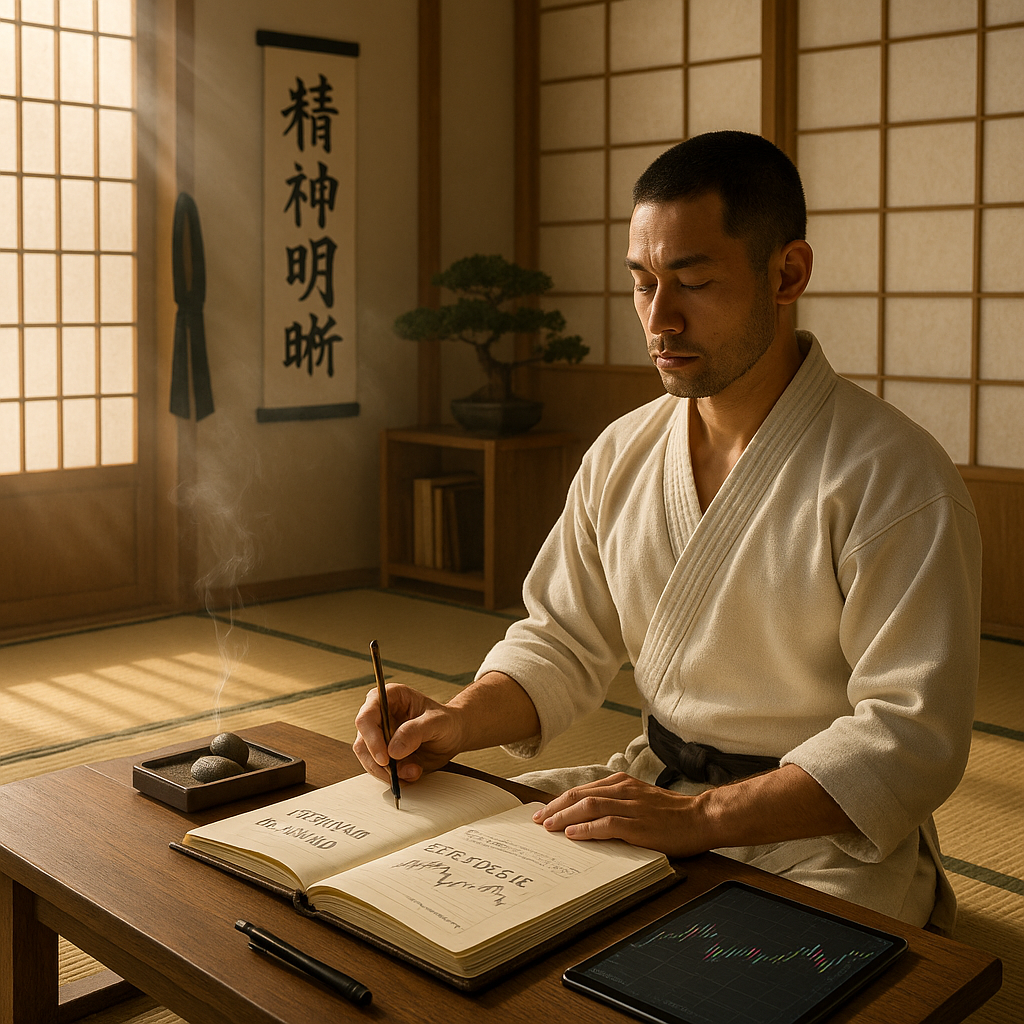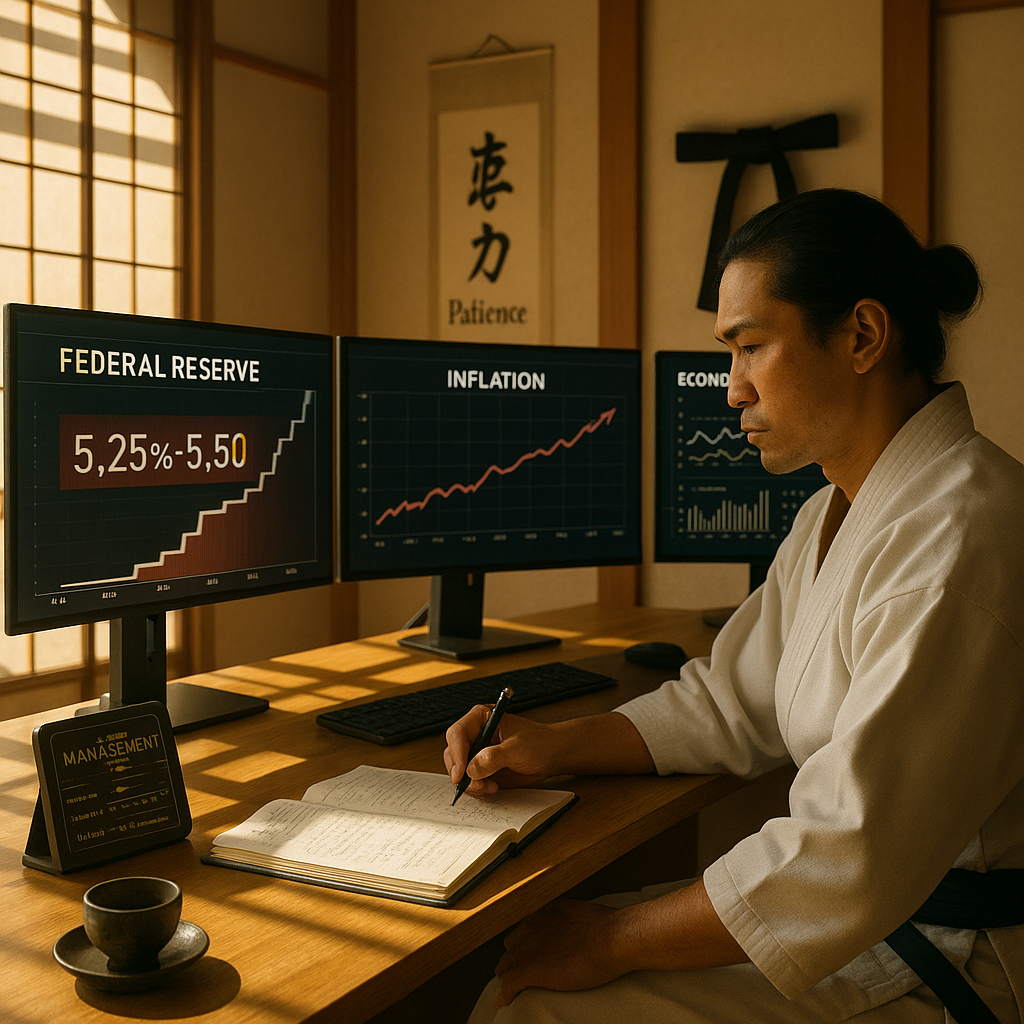Key Takeaways
- Shift from crisis coping to mental training: Approach journaling as a form of daily mental training, not just as a reaction to challenges. This proactive mindset develops cognitive strength and resilience ahead of adversity, echoing the structured routines and intention found in disciplined dojo practice.
- Journaling hones focus and awareness: Regular self-reflection through writing helps clarify your thoughts, reduces mental noise, and sharpens concentration. This transforms journaling into an essential tool for mental fitness and sustained focus in any demanding context.
- Small, consistent practice yields lasting results: Incorporating brief, structured journaling into your daily routine creates powerful habits over time. These consistent efforts turn sporadic notes into a solid foundation for ongoing mental clarity and long-term growth.
- Technique variety builds cognitive versatility: Leveraging an array of journaling strategies (such as guided prompts for mental fortitude, cognitive training exercises, and mindful observation) enables your practice to flexibly address diverse challenges and evolving goals.
- Journaling empowers self-mastery and resilience: Consistent journaling allows you to organize your thoughts, recognize negative patterns early, and cultivate a resilient response to high-pressure moments. This strengthens your ability to act thoughtfully rather than react emotionally.
- Mental journaling fosters discipline and growth: Like martial arts training, journaling is rooted in repetition, discipline, and continuous improvement. By viewing your journal as a dojo for the mind, you establish a cornerstone for ongoing self-mastery.
Embracing mental journaling as a daily discipline means you are actively training your mind for greater clarity, resilience, and focus. The sections ahead will introduce you to practical techniques, effective prompts, and seamless integration strategies to make journaling a vital part of your journey toward cognitive strength.
Introduction
For many, journaling is a way to unload after a difficult day or make sense of troubling emotions. However, mental journaling offers far more. When transformed into a daily discipline, it becomes a true training ground for the mind. It enhances your focus, cultivates clarity, and forges the resilience necessary not just to survive life’s challenges, but to anticipate and overcome them.
Consider the mindset of a martial artist. Training happens long before any match or test. Similarly, a consistent mental journaling routine develops cognitive strength, focus, and situational awareness before stress ever arises. Integrating simple and structured writing exercises into your daily schedule allows fleeting thoughts to become momentum for growth, transforming every entry into a purposeful step on your path to self-mastery.
You are invited to discover how mental journaling can become your personal dojo (a place to practice discipline, gain clarity, and nurture enduring mental strength).
Stay Sharp. Stay Ahead.
Join our Telegram Channel for exclusive content, real insights,
engage with us and other members and get access to
insider updates, early news and top insights.
 Join the Channel
Join the Channel
The Mental Dojo: Understanding Journaling as Training
Transitioning from theory to practice, let’s examine how journaling functions as deliberate training for mental toughness.
The Warrior’s Mind: Journaling as Mental Training
Mental journaling is much more than private diary-keeping. It is an intentional practice, comparable to repeated martial arts drills. Each journaling session forges mental pathways, enhancing your ability to focus and remain composed under pressure.
Notably, research from the University of Rochester reveals that individuals who engage in consistent journaling see improvements of up to 17% in working memory capacity and a 23% reduction in intrusive thoughts. These measurable gains are akin to the gradual progress observed in traditional martial arts, where repeated training leads to mastery over both mind and body.
Just as martial artists rely on a dojo for structured practice, your journal serves as a dedicated space for mental cultivation. Each entry is more than words. It is a training session dedicated to building self-reflection, analytical skill, and emotional stability.
Building Your Mental Training Routine
To structure your mental training and access its full benefits, establish foundational and advanced exercises that build upon each other.
Foundation Exercises
Start with these essential practices to lay a strong mental foundation:
- Morning Clarity Sessions (10 minutes)
- Describe your current mental state.
- Set clear intentions for the day.
- Anticipate potential challenges and outline planned responses.
- Evening Review Practice (15 minutes)
- Analyze your mental performance throughout the day.
- Note insights and lessons learned.
- Plan improvements for the next day.
Advanced Training Techniques
-
The Mental Sparring Method
Engage in written dialogues between conflicting viewpoints within yourself: -
Challenge and scrutinize your own assumptions.
-
Debate hypothetical scenarios.
-
Explore alternative strategies and perspectives.
-
Emotion Mapping Exercise
Track emotional responses like a skilled fighter monitors an opponent’s movements: -
Record situations that trigger strong emotion.
-
Document your reactions and recovery strategies.
-
Reflect on which responses led to positive outcomes.
The Four Pillars of Mental Journaling Practice
A robust mental journaling regimen is anchored by four essential pillars, each reflecting a vital training principle of the martial artist.
1. Awareness Training
Sharpen your ability to observe thoughts and emotions without judgment by engaging in structured self-reflection. Research shows that journaling practitioners who prioritize awareness training see a 31% improvement in emotional intelligence within three months, a key metric for personal and professional success across industries.
2. Strategic Thinking
Transform your journal into a tactical planning tool:
- Record your decision-making process for important choices.
- Analyze past actions, outcomes, and lessons.
- Develop custom templates to address recurring challenges, whether in the markets, the workplace, or personal life.
3. Resilience Building
Use your journal to strengthen psychological resilience just as martial artists practice safe falling:
- Document setbacks, your responses, and strategies for recovery.
- Highlight how you steadily bounce back from adversity.
- Regularly assess growth in handling stress across multiple arenas, from trading to healthcare to education.
4. Mental Flexibility
Adapt your thinking to changing scenarios, similar to adjusting tactics mid-bout:
- Practice shifting perspectives on a single problem.
- Brainstorm multiple solutions and record their potential impacts.
- Document examples of successfully adapting to change, whether it’s a shifting market trend, a classroom challenge, or a workplace disruption.
Overcoming Training Resistance
Just as physical training often faces resistance, mental journaling presents its own obstacles. Addressing these head-on builds both discipline and momentum.
Common Obstacles and Solutions:
- Time Constraints: Design short, scheduled journaling windows aligned with existing routines such as morning coffee or post-work wind-down.
- Inconsistency: Tie your journaling practice to non-negotiable daily habits, such as after brushing your teeth or following your lunch break.
- Self-Doubt: Use your journal to celebrate small victories. Recording achievements, however modest, builds self-efficacy and confidence across personal and professional domains.
- Writer’s Block: Utilize structured prompts or questions to jumpstart your entries, turning writer’s block into an opportunity for targeted training.
Studies show those who use structured scheduling and prompts are 40% more likely to develop and sustain a lasting journaling habit.
Advanced Training Protocols
Once foundational routines are established, you can introduce progressive training systems to amplify your mental gains.
The Mental Clarity Protocol
Employ this stepwise system for building higher-level focus:
Stay Sharp. Stay Ahead.
Join our Telegram Channel for exclusive content, real insights,
engage with us and other members and get access to
insider updates, early news and top insights.
 Join the Channel
Join the Channel
- Start with concise five-minute, topic-driven writing sessions.
- Gradually increase your session length and tackle more complex reflection prompts.
- Introduce targeted cognitive or emotional challenges each week.
- Regularly review and document improvements in mental clarity and decision-making.
The Emotional Mastery Sequence
Leverage a weekly structure to systematically build self-awareness and emotional regulation:
- Monday: Practice mindful self-observation of mental states.
- Wednesday: Analyze recent emotional responses for patterns and growth areas.
- Friday: Develop strategies for anticipated challenges using insights learned.
- Sunday: Integrate lessons and set objectives for the coming week.
Measuring Progress and Advancement
Tracking your journey is vital. Just as martial artists earn new belts, journaling practitioners benefit from recognizing milestones and skills gained.
Sample Progression:
- Beginner: Daily entries with basic self-reflection and observation.
- Intermediate: Active pattern recognition, adjustment strategies, and tactical planning.
- Advanced: Sophisticated problem-solving, emotional mastery, and integration of multiple journaling techniques.
- Master: Coaching others or designing personalized systems for ongoing mental growth.
Monitor measurable improvements such as decision-making speed, emotional regulation, and adaptability. Studies reveal that individuals who track their journaling progress are 76% more likely to pursue their practice long term.
Consistent journaling, much like disciplined martial arts practice, compounds over time. Each session builds on the last, strengthening your mind and positioning you for greater mastery in every facet of life, from trading and finance to healthcare, education, and beyond. As you advance into specific techniques, remember that real transformation comes from dedicated, incremental effort. That’s a universal principle for personal growth.
Conclusion
When you bring martial arts discipline to journaling, the practice evolves from a record of fleeting thoughts to a powerful engine of mental mastery. Each session strengthens your focus, strategic thinking, emotional resilience, and flexibility in the face of disruption. By treating journaling as a deliberate form of daily training, you forge new cognitive pathways and build traits that are essential not only for high-stakes trading, but for thriving in any high-pressure environment.
The routines and protocols outlined here are supported by evidence and designed for real-world transformation. Overcoming resistance through structured habits and tracking your evolution keeps motivation strong, while celebrating each incremental gain deepens your commitment. In a complex world where clarity, resilience, and self-awareness are invaluable, your journaling practice becomes a unique source of competitive advantage.
Looking ahead, those who embrace disciplined mental training (whether through journaling, mindful practice, or adaptive reflection) will lead the way in business, education, healthcare, and beyond. The next generation of excellence belongs to those committed not simply to action, but to mastery and adaptability. The only question is: how will you leverage the power of mental journaling to train your mind and rise above the ordinary challenges of life and the markets? The first step is to sit down, open your journal, and begin. Do it with intention, discipline, and the unwavering focus of a true market warrior.





Leave a Reply